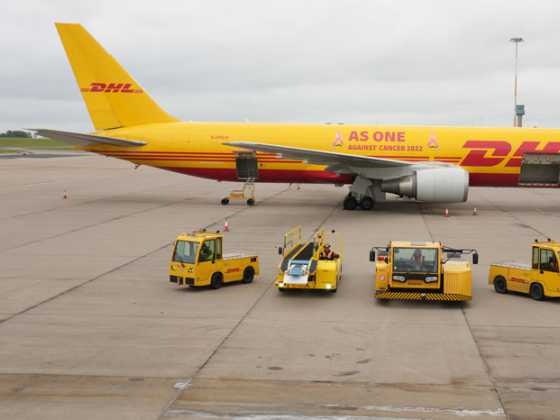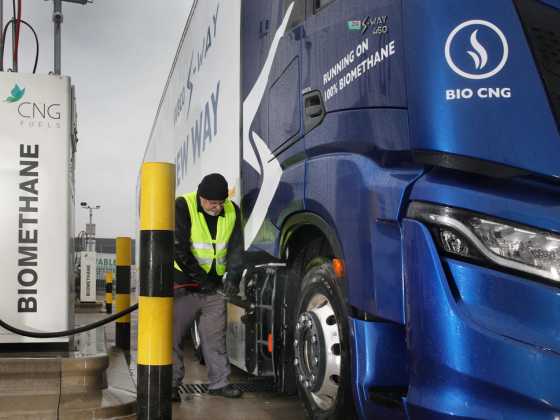What to do with old tyres?
Some 40 million tyres reach the end of their life each year in the UK, which begs the question: what happens to all this ‘dead rubber’?
 Fortunately most of these used tyres – about 80 per cent – are responsibly recycled and find new life in a variety of guises, including use in children’s playgrounds, running tracks, artificial sports pitches, fuel for cement kilns, carpet underlay and equestrian arenas.
Fortunately most of these used tyres – about 80 per cent – are responsibly recycled and find new life in a variety of guises, including use in children’s playgrounds, running tracks, artificial sports pitches, fuel for cement kilns, carpet underlay and equestrian arenas.
However, this imaginative use of old tyres might not have come about if it wasn’t for a piece of landmark EU legislation. Since 2006, across the whole of Europe there has been a complete ban on sending tyres, including shredded tyres, into landfill sites.
But it is still a problem. Tyres that are abandoned, illegally stored or exported have been identified as the Environment Agency’s fourth top risk in terms of illegal waste site types.
THE PROCESS
Gone are the days of dumping old tyres in landfill sites, the 2006 EU Landfill directive put a stop to that. Whether you’re a company car driver, business or fleet operator you now have a duty of care to ensure that your old tyres are recovered and disposed of properly.
For most this would normally mean paying a recycling fee to the retailer when they change the tyres. This fee is the primary injection of cash into a complex system and support infrastructure, which is as follows.
Tyre retailers pay a professional collector to remove the scrap tyres from their premises in accordance with their duty of care and statutory obligations. The collector then sorts and transfers the tyres on to a processor who converts the scrap tyres into a wide range of uses. In the final stage of the chain, the processor converts the scrap tyres into a wide range of uses.
BUSINESSES
The scenario might be different for business and operators of commercial vehicles who replace tyres at their own depot and then have them collected from their site.
In this case, they could well be dealing directly with the tyre collector, but the duty of care obligation still holds true.
Indeed, any producer of waste tyres has a statutory duty of care to know what happens to the tyres collected from their premises.
Therefore, to be legally compliant there are a number of questions that any supplier of waste tyres (be it retailers, businesses or commercial vehicle operators) must ask about their tyre collector. These include: Does the collector have a waste carriers licence? Does the tyre collector issue a Waste Transfer Note? Do the collected tyres go to a licenced recycling facility? Is the waste trail fully audited?
If you cannot answer ‘yes’ to all of these, then you may not be legally compliant and may feel the weight of the Environment Agency.
Schemes
The Tyre Recovery Association (TRA), whose aim is to represent and promote good practice within the tyre recovery sector, operates a number of schemes to ensure all those in the tyre disposal chain stay compliant with current legislation.
Most recently, it has just launched the Responsible Retailer programme. Tyre retailers using the scheme will now, for the first time, be recognised as a Responsible Retailer, giving confidence and assurance to consumers that used tyres being removed from their vehicles are being reprocessed in a legal and environmentally friendly manner.
The initiative has already received significant backing from those both within and outside of the tyre industry. It is being supported by Motor Codes, the government backed self-regulatory body for the motor industry, as well as the Independent Garage Association’s ‘Trust My Garage’ scheme. The Environment Agency has also been heavily involved in the development and is giving its full backing.
Speaking about the launch of the Responsible Retailer initiative, Business and Energy Minister, Michael Fallon said: “Improper disposal of used tyres can have a nasty impact on the environment, so I very much welcome the extension of the industry-led ‘Responsible Recycler’ scheme into the wider tyre supply chain. This move encourages greater business transparency and strengthens the joint Government and industry fight against illegal fly-tipping.”
Mat Crocker, head of illegals and waste at the Environment Agency, said: “Illegal disposal of tyres including the burning of tyres can result in significant pollution of the environment and misery for people living nearby. The Environment Agency welcomes this initiative that will better inform tyre retailers, support legitimate business and make it harder for criminals to dispose of tyres illegally.”
RAISING AWARENESS
Part of the other work undertaken by the TRA is to raise awareness and educate drivers about the recycling or environmental fee they are charged when they change their tyres.
Most drivers do not understand the complex process or infrastructure required to dispose of used tyres in a safe environmentally acceptable manner, so tyre dealers can face resentment from customers who perceive the charge as unjust or profiteering.
However, this is far from reality and the fee charged by retailers is a vital ingredient to the success of the UK model and compliance with the EU’s strict legislation.
A SHINING BEACON
Fortunately, the UK tyre industry has been proactive about its environmental responsibilities long before the 2006 landfill ban came into force.
A series of initiatives has helped the UK achieve the high levels of recovery which are increasingly admired by many other European countries and consequently hold the UK model as a beacon of best practice.
For example, the Tyre Industry Federation Responsible Recycler Scheme is a uniquely successful initiative set up to ensure that all used tyres collected from any designated premises are re-used or recycled in ways which comply with UK and European statutory regulations. It is the largest voluntary tyre recovery programme in Europe.
Scheme members are subject to regular spot audit and are subject to the Scheme Charter. Used tyres collected, handled or reprocessed by scheme members are tracked throughout the disposal chain so delivering full traceability and accountability. Assurance of ‘best practice’ at every stage in the process.
So if you’ve followed all the right steps you can rest assured your old tyres are being put to good use.
To learn more about your duty of care obligations when it comes to disposing of
your tyres, whether you are a private
motorist, fleet manager, commercial vehicle operator or business, then visit the TRA website below.
FURTHER INFORMATION
www.tyrerecovery.org.uk






